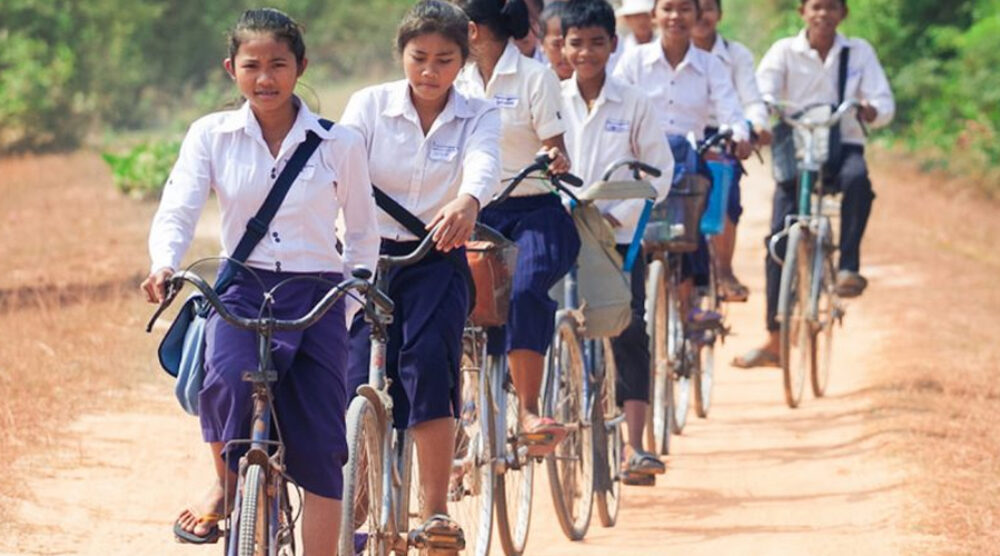Like young people the world over, the youth of Cambodia are glued to their mobile phones. They sit in cafes and bars, order food from street vendors, and weave their motor scooters through Phnom Penh’s frenetic traffic, all the while their thumbs tapping away, texting, gaming, connecting. In the glitzy shopping malls downtown, they queue outside the multiplex cinemas, eager to watch the latest Hollywood blockbuster, juggling buckets of popcorn and oversized cups of soft drink. And at the end of the night, when they need a ride home, they order a Grab – Southeast Asia’s answer to Uber – or use the Cambodian-designed PassApp to order a taxi, which comes in the form of a tuk-tuk.
That the Cambodian youth of today would be so seamlessly integrated into the globalised world of communications, technology, and entertainment would have been unthinkable just one generation ago.
“The sheer scale of the atrocities and large numbers of civil parties registered to take part in the cases have meant that the provision of compensation to the victims of the Khmer Rouge is simply not feasible.”
January marked 40 years since Vietnamese forces toppled Pol Pot’s murderous Khmer Rouge regime. The Phnom Penh they found was largely deserted, the population forcibly evacuated to the countryside in 1975 as part of a plan to strip Cambodia back to its bare bones, to “Year Zero”, and re-establish it as a self-sufficient agrarian utopia.
Please click here to read the full “Taking transitional justice to Cambodia’s youth” article at The Interpreter, written by Griffith Asia Institute member, Professor Renee Jeffery.








